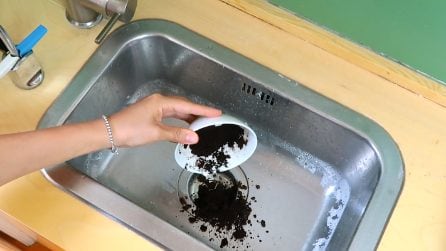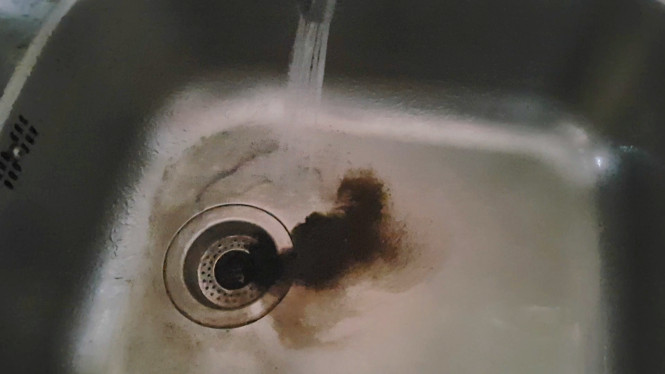Can You Get Rid of Coffee Grounds Down the Sink? - Understanding Implications
Can You Get Rid of Coffee Grounds Down the Sink? - Understanding Implications
Blog Article
They are making a number of great points on the subject of Can Coffee Grounds Go Down the Drain or Sink? in general in the article further down.

If you're an avid coffee enthusiast, you may be questioning the most effective method to throw away your coffee grounds. While it may seem practical to wash them down the sink, this practice can result in several concerns for both your plumbing and the setting. In this write-up, we'll check out whether it's risk-free to put coffee premises down the sink and review alternate disposal methods to take into consideration.
Alternatives to Disposing of Coffee Grounds
Garbage Disposal
If you do not have a composting arrangement, another option is to merely throw your coffee premises in the garbage. Make sure to secure them in a compostable bag or container to avoid smells and leak. While this method does not use the very same environmental advantages as composting, it's a safe and practical method to dispose of coffee premises.
Composting
One environment-friendly option for dealing with coffee grounds is to compost them. Coffee premises are abundant in nitrogen, making them an excellent enhancement to compost heap or containers. As they disintegrate, they include nutrients to the soil, boosting its fertility and structure.
Dangers of Putting Coffee Grounds Down the Sink
Plumbing Issues
One of the key worry about throwing away coffee grounds down the sink is the risk of clogging your pipelines. Coffee grounds don't dissolve in water and can build up in time, forming a thick sludge that can block drains and result in expensive plumbing repair services.
Ecological Impact
Past the possible damages to your plumbing, putting coffee grounds down the sink can additionally hurt the atmosphere. When washed right into the sewage system, coffee premises can contribute to obstructions in drain lines and treatment facilities. Furthermore, the high focus of organic matter in coffee grounds can deplete oxygen degrees in rivers, negatively impacting marine life.
Tips for Proper Disposal
Regular Maintenance
No matter exactly how you choose to throw away your coffee premises, it's necessary to preserve your plumbing consistently. Set up periodic drain cleanings to remove any accumulation and guarantee that your pipes remain clear and free-flowing.
Make Use Of a Sink Strainer
To stop coffee premises from entering your sink's drainpipe in the first place, think about utilizing a sink strainer. These economical tools catch solid particles, consisting of coffee grounds, avoiding them from creating obstructions.
Final thought
While it may be appealing to clean coffee premises down the sink for benefit, doing so can have major consequences for your plumbing and the atmosphere. Instead, consider composting your coffee grounds or throwing away them in the trash. By adopting liable disposal practices, you can appreciate your coffee guilt-free while minimizing your ecological impact.
Coffee Grounds Down The Drain: Are They OK?
Can Coffee Grounds Go Down the Sink?
You may be thinking, “But I pour them down the sink drain every day and I’ve never had a clogged drain!” You see, coffee grounds come from coffee beans, which are virtually rock hard by the time they’re ground and brewed. You certainly wouldn’t want to grind up the pit from a peach, apricot, or nectarine that is about just as hard because they wouldn’t break down like other foods, and it’s the same with coffee beans!
If you usually grind coffee beans in the garbage disposal because it seems the cleanest and convenient, we don’t fault you for that. And anyone who has ever had to clean up the trash with spilled coffee grounds after a dog got into it would understand the rationale. Unfortunately, coffee grounds do not break down in water, so instead of grinding up and washing away as normal foods do in a garbage disposal, they clump together and as time goes by, the grounds can form a clump and pack the drain until it develops a clog.
What to Do With Coffee Grounds
So, what do you do with coffee grounds if you can't put them down the drain? You could of course just throw them in the garbage, but we encourage you to give these practical uses for them a try!
Since coffee grounds contain key minerals for plant growth, you can use them to fertilize your garden. Coffee grounds not only fertilize gardens because they are mineral-rich, but they are also great at absorbing contaminants in the soil, particularly heavy metals. Coffee grounds are said to attract worms, which help gardens flourish. You can use coffee grounds as fertilizer by sprinkling them around your plants. You can compost your coffee grounds and use them at a later time. Coffee grounds are great insect repellents when you place them in bowls or sprinkle them around the areas you want to repel insects. To remove fleas from your dog or cat, simply shampoo your pet then rub coffee grounds throughout their fur. Rinse them off and dry as usual. Like baking soda, used coffee grounds can eliminate odors. You can place them in a bowl in the fridge and let them do the work! Mix coffee grounds with coconut oil for a wonderful face or body scrub, or to reduce the appearance of cellulite. https://www.wintershomeservices.com/blog/2019/august/coffee-grounds-down-the-drain-are-they-ok-/

Do you like more info about Is it safe to dispose of coffee grounds down the sink?? Give a remark down below. We will be glad to find out your thinking about this content. We are looking forward to see you back again later on. Liked our piece of writing? Please share it. Help other people locate it. Many thanks for your time. Visit us again soon.
Phone Report this page